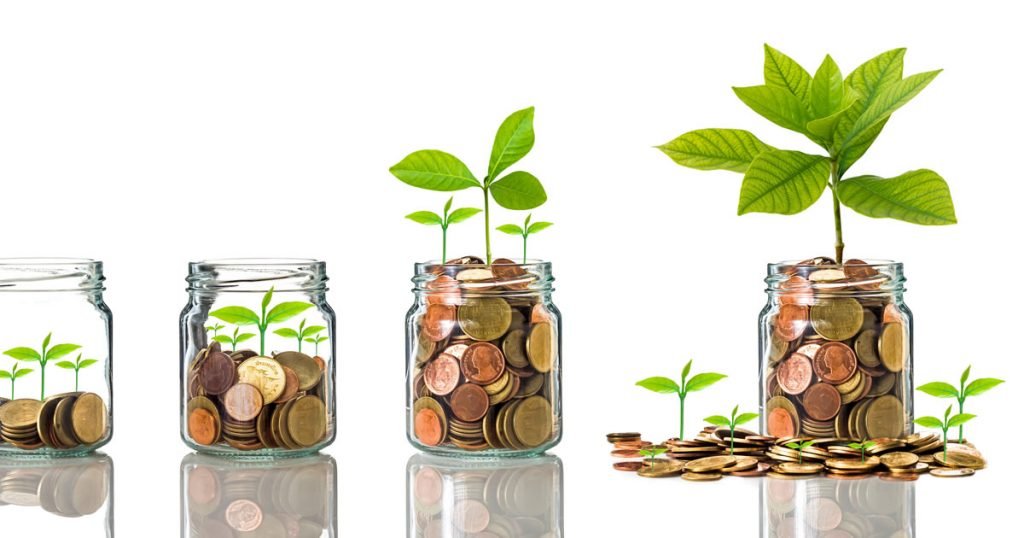Outline of the Article
- Introduction
- Understanding the Concept of Becoming Poor
- Unhealthy Financial Habits
- Overspending and Impulse Buying
- Lack of Budgeting and Financial Planning
- Ignoring Debt and Credit Management
- Neglecting Income Generation
- Procrastination and Lack of Motivation
- Poor Career Choices
- Unproductive Use of Time and Skills
- Failing to Invest and Save
- Lack of Financial Education
- Not Prioritizing Savings
- Ignoring Investment Opportunities
- Negative Mindset and Self-Sabotage
- Fear of Success and Money
- Self-Doubt and Lack of Confidence
- Lack of Goal Setting and Planning
- Poor Health and Lifestyle Choices
- Neglecting Physical and Mental Well-being
- Substance Abuse and Addictions
- Ignoring Long-Term Consequences
- Social and Environmental Factors
- Negative Influences and Peer Pressure
- Living Beyond Means for Social Validation
- Lack of Financial Safety Net
- Conclusion
- FAQs
How to Become Poor in the Next 10 Days
Are you looking to experience the life of poverty? Perhaps you are seeking a unique challenge or want to understand the struggles faced by those with limited financial resources. In this article, we will explore the various aspects and behaviors that can lead to a rapid decline in financial stability. While becoming poor is not a desirable goal for most individuals, understanding the factors that contribute to it can provide valuable insights into financial management and avoiding such pitfalls. So, let’s delve into the steps you can take to become poor in the next 10 days.
Introduction
Becoming poor is not an overnight process; it typically occurs gradually due to a series of financial decisions and circumstances. However, if you’re determined to experience financial hardship in a short span, it is essential to adopt specific behaviors and habits that lead to poverty. While this article does not endorse or encourage such actions, it aims to shed light on the detrimental choices that can result in financial ruin.
Understanding the Concept of Becoming Poor
Before embarking on a journey to become poor, it is crucial to comprehend the meaning and implications of poverty. Poverty is a state of financial insufficiency where individuals lack the resources necessary for a basic standard of living. It involves struggling to meet essential needs like food, shelter, healthcare, and education. Keep in mind that poverty adversely affects not only the individual but also their families and communities.
Unhealthy Financial Habits
To expedite the process of becoming poor, it is necessary to indulge in unhealthy financial habits that drain your resources. Here are some common habits that contribute to financial instability:

Overspending and Impulse Buying
One surefire way to diminish your financial standing is to engage in excessive spending and indulge in impulsive purchases. Disregard the importance of budgeting and spend lavishly on unnecessary items or luxury goods. Focus on instant gratification rather than long-term financial security.
Lack of Budgeting and Financial Planning
Avoid creating a budget or any financial plan. This way, you won’t have a clear understanding of your income, expenses, and savings. Neglecting financial planning will make it difficult to manage your finances effectively and ultimately lead to financial ruin.
Ignoring Debt and Credit Management
To worsen your financial situation, disregard your debts and ignore credit management. Accumulate credit card debts, fail to make timely payments, and neglect the consequences of mounting interest rates. This will eventually result in debt spirals and lower credit scores, making it challenging to access future credit options.
Recommended Reads: Ways to Earn Money Online – 2023
Neglecting Income Generation
To ensure a rapid decline in your financial situation, neglect any efforts to generate income or secure stable employment. Here are some ways to achieve this:

Procrastination and Lack of Motivation
Embrace procrastination and lack motivation to pursue any income-generating activities. Resist taking action towards securing a job, exploring career opportunities, or developing new skills. The longer you delay income generation, the closer you get to financial instability.
Poor Career Choices
Choose unstable or low-paying jobs that offer minimal growth potential. Disregard your skills, qualifications, and passion when selecting a career path. Opt for jobs with uncertain futures or those that provide little financial compensation.
Unproductive Use of Time and Skills
Squander your time and skills on unproductive activities that do not contribute to your financial well-being. Spend excessive hours on non-essential tasks, hobbies, or entertainment, rather than utilizing your time and skills to enhance your income potential.
Failing to Invest and Save
To accelerate your journey towards poverty, it is essential to ignore the importance of investment and saving. Here’s how you can accomplish this:

Lack of Financial Education
Avoid educating yourself about personal finance, investments, and wealth creation. Neglect to understand the power of compounding interest, asset allocation, and long-term financial planning. This will limit your ability to make informed investment decisions and prevent wealth accumulation.
Not Prioritizing Savings
Treat savings as an afterthought and fail to allocate a portion of your income towards savings. Spend every penny you earn without considering the future or unexpected expenses. Lack of savings acts as a safety net during challenging times and keeps you trapped in a cycle of financial instability.
Ignoring Investment Opportunities
Overlook investment opportunities that could potentially grow your wealth. Ignore options such as stocks, bonds, real estate, or retirement accounts. By avoiding investments, you miss out on potential financial growth and restrict your ability to build a secure future.
Negative Mindset and Self-Sabotage
To expedite the process of becoming poor, it is crucial to adopt a negative mindset and engage in self-sabotaging behaviors. Here are some actions to consider:

Fear of Success and Money
Allow fear to control your actions, particularly when it comes to success and money. Develop a mindset that associates wealth with negative attributes or unethical practices. This fear will prevent you from taking the necessary steps to improve your financial situation.
Self-Doubt and Lack of Confidence
Lack self-belief and constantly doubt your abilities to overcome financial challenges. Underestimate your potential and settle for mediocrity. This will hinder personal and professional growth, leading to limited financial opportunities.
Lack of Goal Setting and Planning
Avoid setting goals and fail to create a roadmap for financial success. By neglecting goal setting and planning, you eliminate the clarity and direction required to achieve financial stability. Without goals, your financial journey becomes aimless and filled with uncertainties.
Poor Health and Lifestyle Choices
To accelerate the process of becoming poor, it is essential to neglect your physical and mental well-being. Here’s how you can do that:

Neglecting Physical and Mental Well-being
Disregard exercise, proper nutrition, and self-care practices that contribute to your overall health. Neglecting your physical and mental well-being can lead to increased medical expenses and reduced productivity.
Related Topic: Unveiling the Essence: Discovering the Path to Your Ikigai
Substance Abuse and Addictions
Engage in substance abuse or develop addictions that drain your financial resources. This destructive behavior not only harms your health but also drains your finances rapidly.
Ignoring Long-Term Consequences
Disregard the long-term consequences of unhealthy lifestyle choices. Engage in activities that jeopardize your health, such as smoking, excessive drinking, or risky behaviors. The resulting health issues will lead to additional financial burdens.
Social and Environmental Factors
To expedite the process of becoming poor, it is important to surround yourself with negative influences and disregard financial safety nets. Consider the following factors:
Negative Influences and Peer Pressure
Surround yourself with individuals who exhibit poor financial habits and encourage reckless spending. Succumb to peer pressure, making financial choices that align with societal expectations rather than your financial well-being.
Living Beyond Means for Social Validation
Focus on material possessions and prioritize social validation over financial stability. Live beyond your means by accumulating debt to acquire luxury items or maintain an extravagant lifestyle. This excessive spending will quickly erode your financial foundation.
Lack of Financial Safety Net
Disregard the importance of having a financial safety net. Fail to create an emergency fund or insurance coverage to protect yourself from unforeseen circumstances. Without a safety net, any financial setback can quickly plunge you into poverty.
Conclusion
While this article has provided insights into how one can become poor in the next 10 days, it is essential to note that financial stability and security are the desired outcomes for most individuals. The steps outlined in this article are not meant to be followed but rather serve as a cautionary guide to understand the behaviors and habits that lead to financial ruin. It is crucial to prioritize financial literacy, responsible spending, savings, and investments to build a strong foundation for a secure future.
FAQs
1. Is this article meant to encourage people to become poor?
No, this article aims to shed light on the detrimental financial behaviors and habits that can lead to poverty. It is crucial to understand these factors to avoid them and strive for financial stability.
2. Are there any benefits to experiencing poverty?
Experiencing poverty is generally considered undesirable due to the lack of resources and hardships it brings. However, some individuals may gain valuable insights and empathy for those facing financial challenges.
3. How long does it take to recover from poverty?
Recovering from poverty can vary significantly depending on individual circumstances. It often requires a combination of financial education, discipline, and support systems. The duration can range from a few years to a lifetime, depending on the severity of the situation.
4. Can someone become wealthy after experiencing poverty?
Yes, it is possible to overcome poverty and achieve financial wealth. With proper financial education, disciplined saving and investing, and determination, individuals can improve their financial standing and build wealth over time.
5. What are some steps to achieve financial stability?
To achieve financial stability, it is important to create a budget, live within your means, prioritize savings, invest wisely, and continually educate yourself about personal finance. Building an emergency fund and seeking professional advice can also contribute to long-term financial security.


